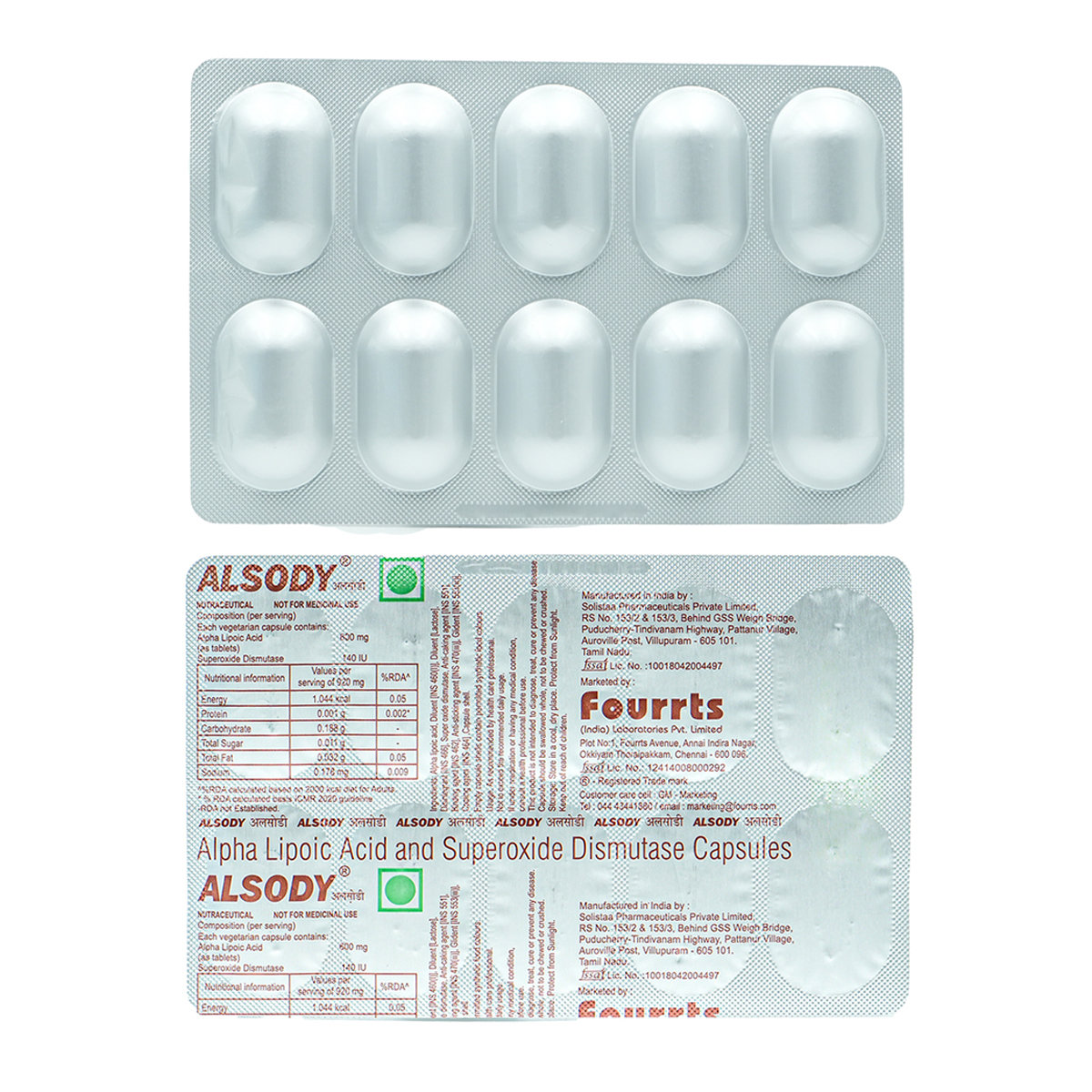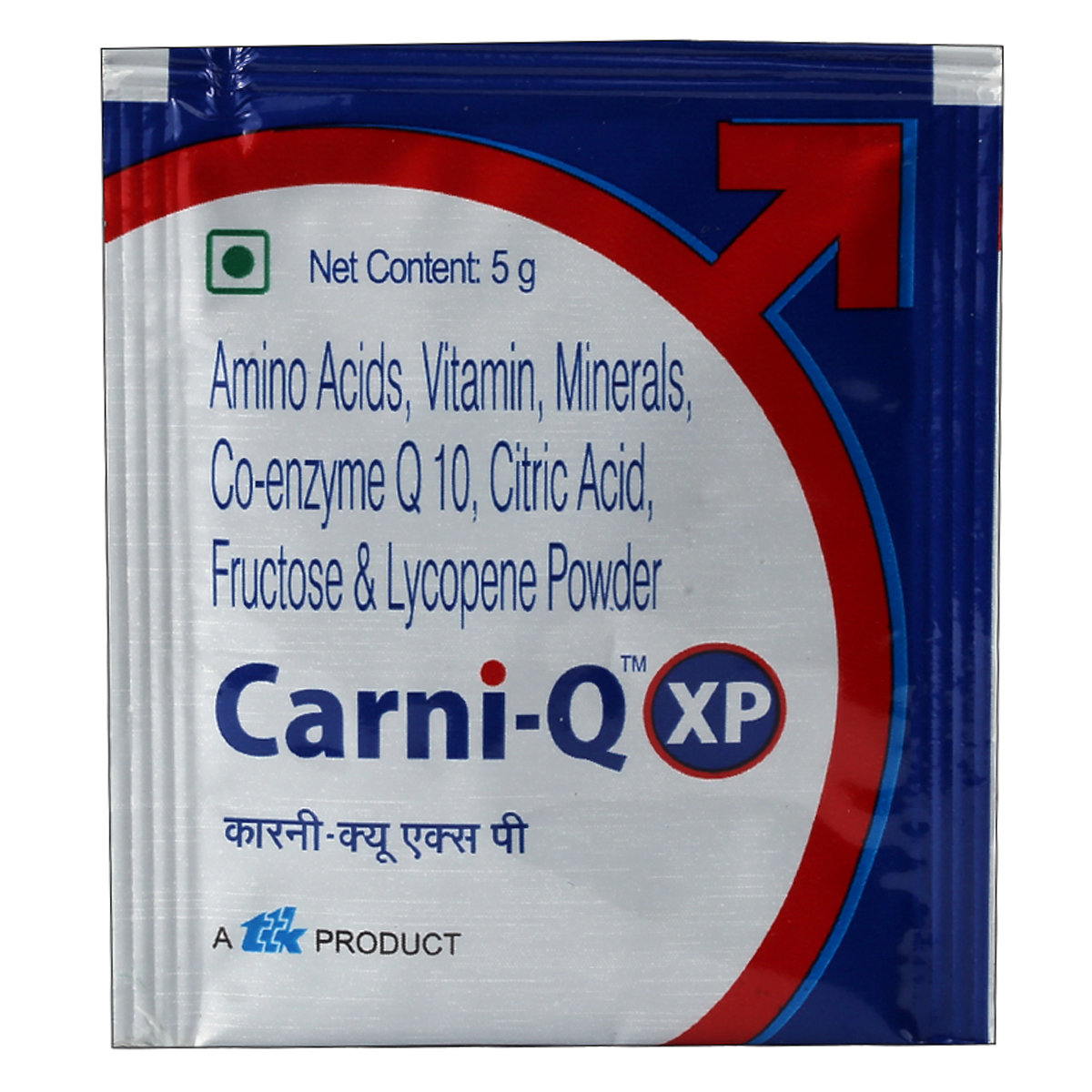Alpha Lipoic Acid+superoxide Dismutase
About Alpha Lipoic Acid+superoxide Dismutase
Alpha Lipoic Acid+superoxide Dismutase belongs to the class of antioxidants used to manage chronic low back pain, neuropathic pain (diabetic neuropathy) and inflammatory pain. Neuropathic pain is caused by damage or injury to the somatosensory nervous system. Inflammatory pain is described as increased sensitivity caused by an inflammatory reaction associated with tissue damage.
Alpha Lipoic Acid+superoxide Dismutase contains alpha-lipoic acid and superoxide dismutase. Alpha-lipoic acid is an antioxidant that prevents cell damage and restores vitamin levels in the body. It also decreases pain and numbness in neuropathy. Superoxide dismutase prevents tissue damage and inflammation by breaking down harmful oxygen molecules and affecting immune response.
Alpha Lipoic Acid+superoxide Dismutase can be taken with or without food. Alpha Lipoic Acid+superoxide Dismutase should be swallowed whole with a glass of water; do not chew or break it. In some circumstances, you may encounter common side effects such as dizziness, sleepiness, tiredness, headache, and upset stomach. Most of these side effects do not necessitate medical treatment and will subside gradually over time. However, if you are experiencing these side effects regularly, you should consult your doctor.
Please do not take Alpha Lipoic Acid+superoxide Dismutase if you are allergic to any of its ingredients. Consult your doctor if you are pregnant or breastfeeding. Alpha Lipoic Acid+superoxide Dismutase may cause drowsiness and dizziness, so drive only if you are alert. Alpha Lipoic Acid+superoxide Dismutase should not be given to children as safety and effectiveness have not been established. Avoid consuming alcohol along with Alpha Lipoic Acid+superoxide Dismutase as it could lead to increased dizziness and sleepiness. Keep your doctor informed about your health condition and medicines to rule out any side effects.
Uses of Alpha Lipoic Acid+superoxide Dismutase
Medicinal Benefits
Alpha Lipoic Acid+superoxide Dismutase belongs to the 'antioxidants & anti-inflammatory agents' class. It is indicated for the management of chronic low back pain, neuropathic and inflammatory pain. Alpha Lipoic Acid+superoxide Dismutase contains an antioxidant (alpha-lipoic acid) and an anti-inflammatory substance (superoxide dismutase). Alpha Lipoic Acid+superoxide Dismutase efficiently decreases both neuropathic and inflammatory pain, including osteoarthritis and rheumatoid arthritis, due to the nature of its powerful antioxidant and anti-inflammatory properties.
Directions for Use
Storage
Side Effects of Alpha Lipoic Acid+superoxide Dismutase
- Dizziness
- Sleepiness
- Tiredness
- Headache
- Upset stomach
Drug Warnings
To treat your condition effectually, continue taking Alpha Lipoic Acid+superoxide Dismutase for as long as your doctor has recommended. Consult your doctor if you are pregnant or breastfeeding. Alpha Lipoic Acid+superoxide Dismutase may cause drowsiness and dizziness, so drive only if you are alert. Alpha Lipoic Acid+superoxide Dismutase should not be given to children as safety and effectiveness have not been established. Avoid consuming alcohol along with Alpha Lipoic Acid+superoxide Dismutase to avoid unpleasant side effects. Keep your doctor informed about your health condition and medicines to rule out any side effects.
Drug Interactions
Drug-Drug Interactions: Alpha Lipoic Acid+superoxide Dismutase may have interaction with antidepressant medications (e.g. amitriptyline, duloxetine, mirtazapine, fluoxetine), anticonvulsants (e.g. gabapentin), anti-anxiety medications (e.g. diazepam, alprazolam), anti-diabetic medications (e.g. metformin), antibiotic medications (e.g. chloramphenicol), and pain killers (e.g. codeine, fentanyl, hydrocodone, morphine, oxycodone, tramadol).
Drug-Food Interactions: Avoid consuming alcohol along with Alpha Lipoic Acid+superoxide Dismutase to avoid unpleasant side effects.
Drug-Disease Interactions: Alpha Lipoic Acid+superoxide Dismutase may interact with disease conditions such as angioedema, creatine kinase elevations, peripheral oedema, malabsorption and anaemia.
Drug-Drug Interactions Checker List:
Safety Advice

Alcohol
cautionYou are recommended not to consume alcohol with Alpha Lipoic Acid+superoxide Dismutase to avoid unpleasant side effects.

Pregnancy
cautionPlease consult your doctor if you have any concerns; your doctor will suggest only if the benefits outweigh the risks.

Breast Feeding
cautionConsult your doctor before taking Alpha Lipoic Acid+superoxide Dismutase; your doctor will decide whether Alpha Lipoic Acid+superoxide Dismutase can be taken by breastfeeding mothers or not.

Driving
cautionDrive only if you are physically stable and mentally focussed. If you experience drowsiness after taking this medication, you should not drive or operate any machinery.

Liver
cautionAlpha Lipoic Acid+superoxide Dismutase should be taken with caution. Please consult your doctor if you have a liver impairment or any concerns regarding this.

Kidney
cautionAlpha Lipoic Acid+superoxide Dismutase should be taken with caution. Please consult your doctor if you have kidney impairment or any concerns regarding this.

Children
cautionAlpha Lipoic Acid+superoxide Dismutase should not be given to children as the safety and efficacy have not been established.
Habit Forming
Diet & Lifestyle Advise
- Include food rich in vitamin B and D in your diet.
- Include cayenne pepper in your diet as it can help in lowering neuropathic pain.
- Exercising regularly helps in improving overall health and combating pain.
- Rest well, get plenty of sleep.
- Try taking a warm bath as it can be soothing.
- Avoid smoking and alcohol consumption.
- Meditation and yoga can help lower stress, decrease pain sensitivity and improve coping skills.
- Acupuncture can be helpful by stimulating pressure points.
- Using essential oils for massages can help increase circulation.
Patients Concern
Disease/Condition Glossary
Pain: Pain is a symptom triggered by the nervous system, causing uncomfortable sensations in the body. It can be temporary (acute) or lifelong (chronic) in nature. Acute pain is for a short time caused by damage to the tissues of the muscle, bone, or organs. In contrast, chronic pain lasts lifelong and can occur due to severe inflammation or tissue damage, such as in osteoarthritis and rheumatoid arthritis.
Neuropathic pain: Neuropathic pain is caused by injury or damage to the somatosensory nervous system.
Inflammatory pain: Inflammatory pain is described as increased sensitivity caused by an inflammatory reaction associated with tissue damage.
FAQs
Alpha Lipoic Acid+superoxide Dismutase contains alpha-lipoic acid and superoxide dismutase. Alpha-lipoic acid is an antioxidant that prevents cell damage and restores vitamin levels in the body. It also decreases pain and numbness in neuropathy. Superoxide dismutase prevents tissue damage and inflammation by breaking down harmful oxygen molecules and affecting immune response.
To treat your condition effectually, continue taking Alpha Lipoic Acid+superoxide Dismutase for as long as recommended. Do not be reluctant to speak with your doctor if you have difficulty taking Alpha Lipoic Acid+superoxide Dismutase.
Nerve pressure or nerve injury after surgery or trauma, viral infections, cancer, vascular malformations, alcoholism, neurological diseases such as multiple sclerosis, and metabolic conditions such as diabetes are all common causes of neuropathic pain.
Alpha Lipoic Acid+superoxide Dismutase can reduce the symptoms of severe back pain, but it would be better to take it as per the doctor’s recommendation only. Your doctor recommends Alpha Lipoic Acid+superoxide Dismutase per your medical condition and response to the treatment.
Alpha Lipoic Acid+superoxide Dismutase is used to treat diabetic neuropathy. Diabetic neuropathy is a condition in which nerve damage occurs due to high blood glucose levels. It mostly causes pain in the legs and feet.
Traumatic injuries, infections, metabolic issues, hereditary reasons could lead to peripheral neuropathy. Diabetes is one of the most common causes.






